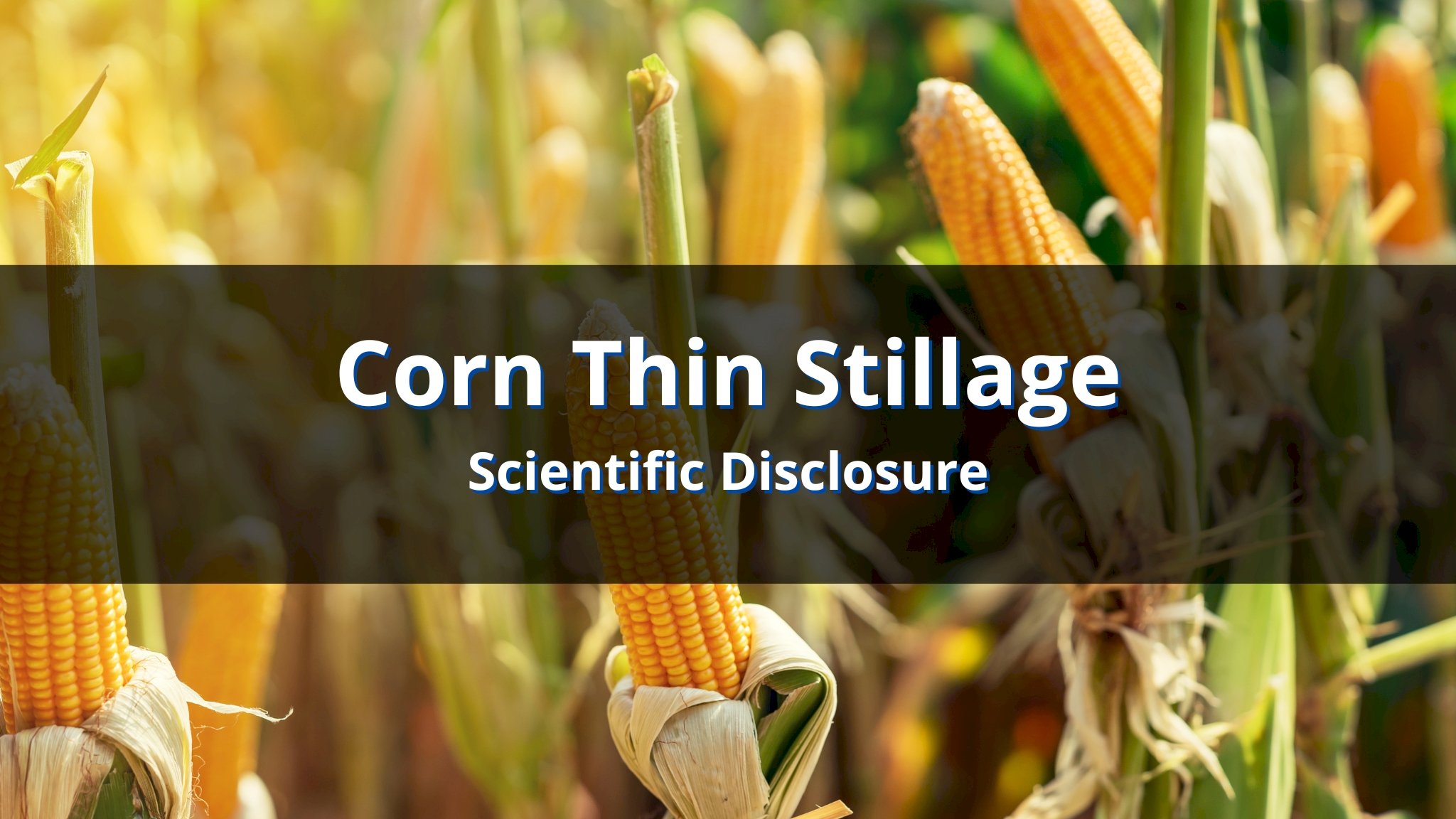Biogas from Corn Thin Stillage
Reading time: approximately 2m32s
A study from Unicamp (a university in Brazil) on the biogas potential of thin stillage from the corn ethanol process highlights the technical and economic viability of this new bioenergy source. Check it out!

Biogas from Corn Thin Stillage
Researchers from Unicamp (Brazil) assess the potential for biogas production from the thin stillage obtained in the corn ethanol production process
Article Summary
The article "Corn ethanol production with thin stillage anaerobic digestion for bioenergy recovery: A technical and economic evaluation" was published in the Journal Industrial Crops and Products in Volume 206 on December 15, 2023.
Authors
The article was written by:
- Henrique Di Domenico Ziero,
- Larissa Castro Ampese,
- Luz Selene Buller,
- Josiel Martins Costa,
- Mauro Berni,
- Tânia Forster-Carneiro
Presentation
The study aimed to evaluate the energy potential of thin stillage, a byproduct of the corn ethanol process, for biogas/biomethane production, aiming at bioenergy recovery. The objective was to assess the economic and environmental viability of energy generation from thin stillage anaerobic digestion in corn ethanol plants.
Methodology
The methodology involved detailed technical and economic analyses, considering three scenarios:
- Standard corn ethanol plant;
- AD-CHP - Utilization of thin stillage to produce biogas through anaerobic digestion and biogas combustion in a CHP system;
- AD-BU - Purification of biogas for biomethane production and commercialization.
Theoretical biogas production, UASB reactor design, thermal and electrical energy generation, and avoided greenhouse gas emissions in the industrial process were estimated.
Study Object
In the research, the substrate (study object) used in anaerobic digestion to produce biogas is thin stillage, which is a byproduct of the corn ethanol production process. The thin stillage is directed to an equalization tank and subsequently used in biogas production through anaerobic digestion.
Main Results
The results indicated that anaerobic digestion of thin stillage in corn ethanol plants can generate energy efficiently and sustainably.
The results demonstrated the technical and economic viability of bioenergy production from thin stillage anaerobic digestion, with thermal and electrical energy generation, as well as reduction in greenhouse gas emissions. These results highlight the promising potential of this approach for bioenergy production in corn ethanol plants, contributing to more sustainable practices in the biofuel industry.
Conclusion
The conclusion of the article emphasizes the importance and feasibility of bioenergy generation from thin stillage anaerobic digestion in corn ethanol plants. The results obtained demonstrated that the use of this byproduct for biogas production can not only generate energy efficiently but also contribute to the reduction of greenhouse gas emissions and promote more sustainable practices in the biofuel industry.
The proposed approach in the different evaluated scenarios proved to be promising from both technical and economic perspectives, highlighting the importance of considering byproduct valorization alternatives in a circular economy.
Access to the Full Article
For more detailed information on the methodology used and biogas potential values, among other results obtained, access the full article:
Bibliographic Reference
ZIERO, Henrique Di Domenico et al. Corn ethanol production with thin stillage anaerobic digestion for bioenergy recovery: A technical and economic evaluation. Industrial Crops and Products, v. 206, p. 117618, 2023. DOI: 10.1016/j.indcrop.2023.117618
Interested in the topic?
Want to learn more about biogas in Brazil?
All rights reserved - Energy and Biogas Portal ®











NOTICE! The space for comments is intended for a healthy debate of ideas. Posts containing inappropriate expressions or personal attacks on the publication team, another user or any identified group or individual will not be accepted. If this occurs, we reserve the right to delete the comment to maintain a respectful environment for discussion.